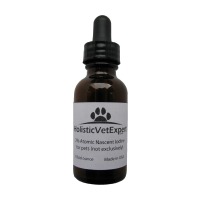
|
|


|
|
|||
Older Dog NutritionWhen dogs reach the final third of their lives they are considered older or senior dogs. This age can vary depending on the expected lifespan of a particular breed but generally speaking towards the age of six to nine a dog will begin to experience problems associated with aging bones, failing organs and cognitive dysfunction. While the onset of such conditions is inevitable recent studies suggest dogs are living longer lives and a contributing factor is better nutrition and diets. Knowing how to adapt a canine's diet when he reaches old age will provide a better mix of the necessary nutrition his body needs to deal with deficiencies. You'll know when your dog is experiencing pain and discomfort from aging. One day his coordination may off, his appetite not as hearty and his energy noticeably decreasing. Caring for a dog in the later stages of his life requires careful attention to his diet so he gets the necessary nutrition to assist in his adapting to weakening joints and bones and other discomfort associated with aging. Older dogs can experience sudden weight gain or weight loss and when this occurs owners need to adapt the dog's diet to compensate for a lack of protein or fiber and also to reduce fat and lower calories. Owners may notice in an older dog a lack of appetite or an unwillingness to eat dry dog food or kibble. This is common. A dog's teeth get a rigorous workout over years of chewing, gnawing and chomping and when he gets older his gums will be rather sensitive. Hard kibble bits will probably irritate this condition and turn him off to dry food. Try moistening his hard food with warm water or mixing it up with a number of safer "people" foods including boiled rice, potatoes, vegetables, chicken and hamburger. Older dogs will also experience periods of constipation and it is important to get him to eat larger portions of bran to help him alleviate this discomfort. Wheat bran is often successful in treating constipation in older dogs and when mixed in with his regular diet balances his nutrition and keeps him active. Another tip for treating an older dog is to include vitamin and mineral supplements in the form of pills and tablets to prevent deficiencies. Using a supplement containing antioxidants, glucosamine and chondroitin can better lubricate an older dog's joints and help prevent deteriorating conditions of arthritis. | |||
|
We have Nascent Iodine!
| Case Histories |
MAX: A CASE OF IMMITICIDE POISONING
Results of routine heart worm treatment
Dana Matthews DC
Greg Hollandsworth DC
"Max the boxer has had quite a life. He was born in Texas on July 25, 2006 and for the first 2 ½ years of his life, he lived with a family who had too much going on to take proper care of him. They had too many kids and other dogs and so Max, being an energetic boxer puppy and too much to handle, got chained to a tree in the backyard. Finally the family decided to give Max up for adoption so that another family could offer him the life he deserved. Unfortunately, by the time they had decided to do that, Max had already been bitten by a mosquito that carried heartworms and it subsequently infected him...."


Home About Dr Preston Why Holistic? Resources Content Privacy Statement Site Map Contact Us
Copyright ©2009, Holistic Vet Expert, All Right Reserved





